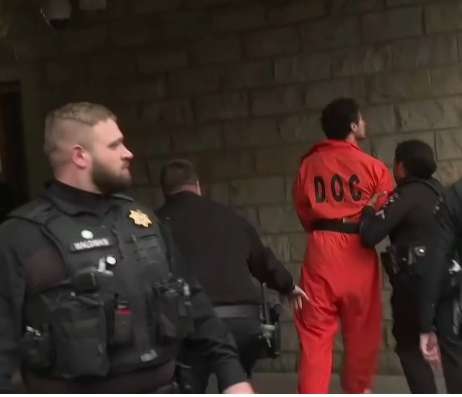Mangione Faces Strong Murder Case, Potential Insanity Plea
The arrest of Luigi Mangione, 26, in connection with the murder of healthcare insurance CEO Brian Thompson has sparked widespread public interest and ignited concerns about potential copycat crimes targeting industry executives. Mangione, apprehended at a McDonald’s in Altoona, Pennsylvania, after a multi-state manhunt, faces a second-degree murder charge in New York. The abundance of forensic and ballistic evidence linking him to the crime scene, including fingerprints and shell casings, presents a formidable challenge for his defense team. Found in possession of a firearm, silencer, false identification, and handwritten notes hinting at a possible motive, Mangione’s attempts to plead innocence appear increasingly improbable in the face of such compelling evidence. While his lawyer, Thomas Dickey, expressed initial skepticism about his client’s identification and the strength of the prosecution’s case, legal experts suggest the evidence against Mangione is substantial.
The complexity of the case is further compounded by Mangione’s current fight against extradition from Pennsylvania to New York, a process that could delay proceedings for over a month. While this legal maneuver is unlikely to be successful, it provides his defense an opportunity to scrutinize the prosecution’s evidence. Upon extradition, Mangione’s legal options will be limited. He could attempt to deny involvement altogether, a strategy severely hampered by the existing evidence. Alternatively, he could argue for leniency based on extenuating circumstances, though the nature of these circumstances remains unclear. Other possible defense strategies include claims of impaired mental status, which could lead to a postponement of the trial or even indefinite institutionalization if deemed unfit to stand trial. An insanity plea, another potential avenue, would likely result in institutionalization rather than acquittal.
The public’s fascination with the case is fueled by the backdrop of growing anti-corporate sentiment, particularly towards the healthcare insurance industry. Anonymous donors have contributed to Mangione’s defense fund through online platforms, and online forums have seen a surge in posts targeting healthcare executives, including the sharing of personal information and the creation of mock wanted posters. Former FBI agent Timothy Gallagher has voiced concerns about the potential for copycat crimes, emphasizing the risk of escalating threats and attacks against industry leaders spurred by the widespread attention and support Mangione has received from certain online communities. This raises the specter of further violence against a backdrop of escalating anti-corporate rhetoric.
Mangione’s arrest and the subsequent legal proceedings have illuminated a complex interplay of factors: the strength of the prosecution’s evidence, the limitations of potential defense strategies, the public’s fascination with the case, and the broader context of anti-corporate sentiment. The case highlights the challenges of balancing individual rights with public safety in an era of heightened online activism and potential for real-world consequences stemming from online rhetoric. The NYPD’s warnings about potential risks to other healthcare executives underscore the need for vigilance and proactive measures to mitigate the risk of further violence. The online activity surrounding the case serves as a stark reminder of the power of social media to both amplify grievances and potentially incite harmful actions.
The outpouring of online support for Mangione from certain segments of the population, coupled with the targeted harassment of healthcare executives on online platforms, raises serious questions about the nature and extent of anti-corporate sentiment. While criticism of corporate practices is certainly valid and often necessary, the line between legitimate critique and incitements to violence is a crucial one. The case underscores the importance of responsible online behavior and the need for platforms to effectively moderate content that promotes violence or harassment. It also highlights the need for law enforcement agencies to monitor online activity for potential threats and take appropriate action to prevent real-world harm.
The Mangione case serves as a cautionary tale about the potential for online activism to escalate into real-world violence. The combination of a high-profile murder case, readily accessible online platforms, and a climate of growing anti-corporate sentiment creates a volatile mix. As the legal proceedings unfold, the broader implications of the case will continue to be debated and analyzed, with a particular focus on the role of online platforms in shaping public discourse and potentially inciting violence. The case serves as a stark reminder of the need for vigilance and responsible engagement in online spaces, both from individuals and platform providers.
Share this content:












Post Comment